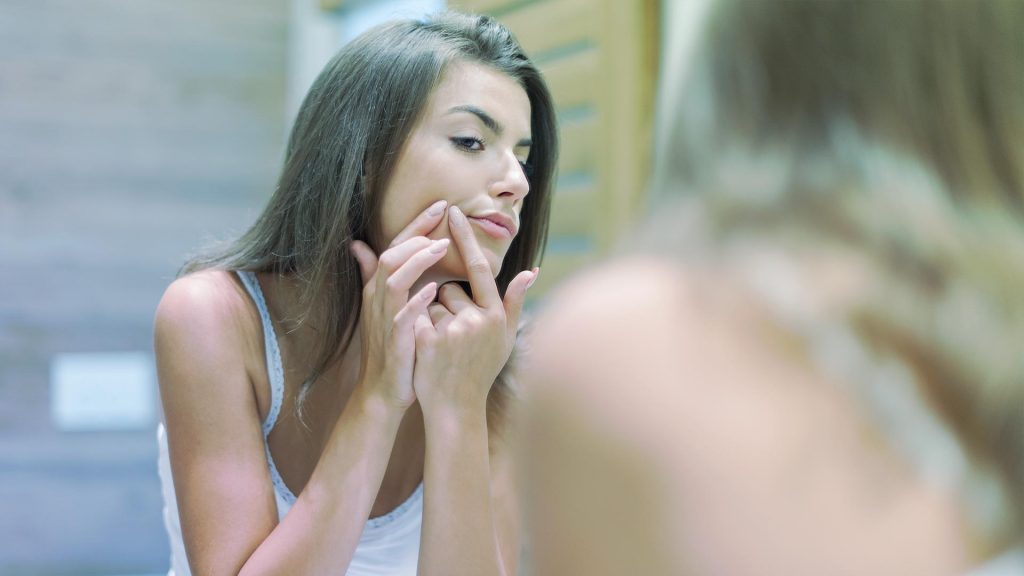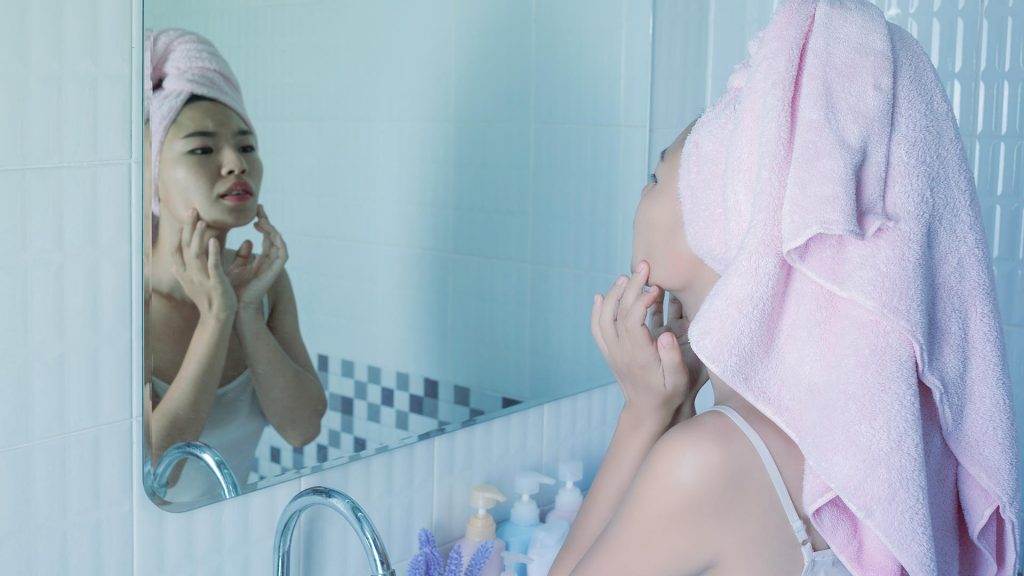What causes acne and how to get rid of it
Zits, pimples, spots, breakouts, blemishes.
Whatever name you give it, acne is a most unwanted skin condition. And people spend vast amounts of money on products that claim to get rid of acne. But some of those products barely work.
Here, we give you a comprehensive overview of acne and what causes it.

What is acne?
Acne is a very common skin condition that usually begins in adolescence. Acne happens when hair follicles become clogged with oil and dead skin. Acne — including whiteheads, blackheads and inflamed pus-filled spots — appears where oil (sebaceous) glands are most active. This usually includes the face, neck, back and chest.
However, acne is not just a cosmetic nuisance. Severe acne causes big, red, painful nodules or cysts to develop. These very inflamed spots can scar.
Acne can also trigger poor self-esteem, anxiety and even depression in some people. Please reach out to a doctor if you notice mood changes when you have acne.
You may notice times when your acne flares, but at other times you’re relatively acne-free.
What causes acne?
The main causes of acne include:
- Hormones: Just before puberty (around age 8), your adrenal glands begin to produce hormones (androgens). The oil (sebaceous) glands, next to the hair follicle, respond to the hormones by producing more sebum, which can clog the pore. As the amount of androgens produced increases throughout puberty, so does the likelihood of blocked pores.
- Oil gland blockage: When the skin cells lining the upper part of the hair follicle shaft aren’t shed properly, they can accumulate and form a plug (comedone). This traps the oil in the shaft.
- Bacteria and inflammation: Acne bacteria (Propionibacterium acnes) can build up in the hair follicle shaft. These bacteria can cause the redness (inflammation) common to acne.
- Stress: Your adrenal glands produce more androgens when you get stressed. This can make acne worse.
How to get rid of acne
Medical treatments for acne
Acne will usually go away on its own, but it can take 3 to 5 years (and sometimes persists). This is why it is important to seek professional medical help.
A doctor knows how to treat acne safely and effectively. Your doctor will aim to:
- Reduce the number of blackheads and whiteheads
- Reduce redness and swelling of spots
- Avoid permanent skin discolouration
- Prevent scarring
If you are experiencing symptoms, you should speak to a doctor to find out the right treatment for you.

Managing acne at home
There’s a variety of ways you can manage or prevent a breakout.
- Don’t squeeze, pick at or pop pimples. This can worsen inflammation and could lead to scarring.
- To remove oil, wash your face with warm water, a mild cleanser and a soft face cloth. Avoid over-cleansing as this can dry out and irritate your skin, which could worsen acne.
- For this reason, avoid abrasive scrubs, toners and cleansers
- Don’t wear tight clothing over acne-prone areas
- Avoid hot and humid environments
- Don’t use greasy cosmetics or sunscreens on acne-prone areas
- Avoid smoking
Does diet and exercise help acne?
The science is still developing around how much diet and exercise contribute to acne.
Exercise can help manage stress. And stress increases hormone levels (androgens) that trigger acne breakouts. So exercise may help reduce androgen levels and therefore reduce the production of oil.
In the lab, tests show that simple sugars and dairy drive production of acne-causing hormones. This means that things like milk, chocolate and cheese could play a role in causing or worsening acne.
However, we need more high-quality clinical studies to determine the role of diet and exercise in acne.
Myth-busting acne ‘cures’
As a consumer, you need to be careful as you navigate the multitude of treatments spruiked for acne. Some ‘remedies’ aren’t very effective (at best) and could be harmful (at worst). Here are some of the common acne treatment myths:
MYTH: Tanning helps clear up acne.
Fact: There’s no link between sun exposure and acne prevention. But UV rays can cause premature aging and skin cancer.
MYTH: Having super clean skin will prevent acne breakouts.
Fact: Washing your face does remove dirt and oil from your pores. But washing too much can lead to dryness and irritation which can make acne worse. And, in fact, dirt is not the main culprit that causes acne.
MYTH: Squeezing pimples will help them go away faster.
Fact: Squeezing or popping a pimple may feel like it solves the problem, but can actually make things worse. When you squeeze or pop, you force bacteria, dead skin cells, and oil further into the skin, causing more swelling and redness. You could also damage your skin, causing it to scar.
MYTH: You shouldn’t wear makeup if you have acne.
Fact: Makeup has come a long way in recent years. Lots of cosmetics these days are non-comedogenic (they shouldn’t cause breakouts). There are even some cosmetics that contain ingredients (like benzoyl peroxide) that help treat acne.
MYTH: You can sweat acne out.
Fact: There’s no evidence to show that hot towels or steam therapy improves acne. In fact, some studies show that acne gets worse in hot, humid climates.
To speak with an InstantScripts Doctor:
Request a ConsultationIf you have run out of your script:
Request a Script© InstantScripts
Level 8 / 637 Flinders St.,
Docklands VIC 3008

